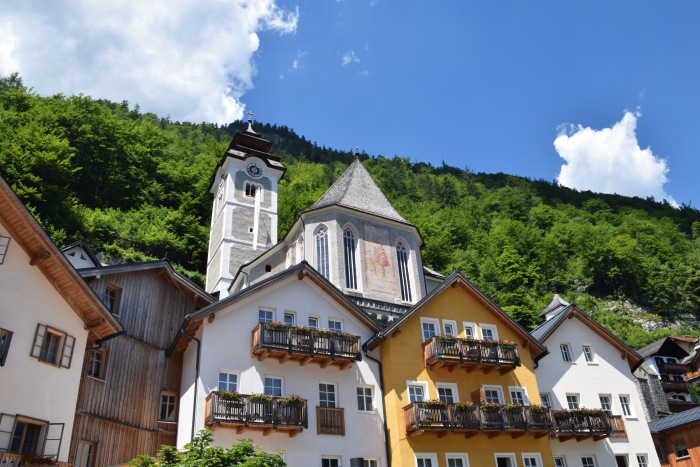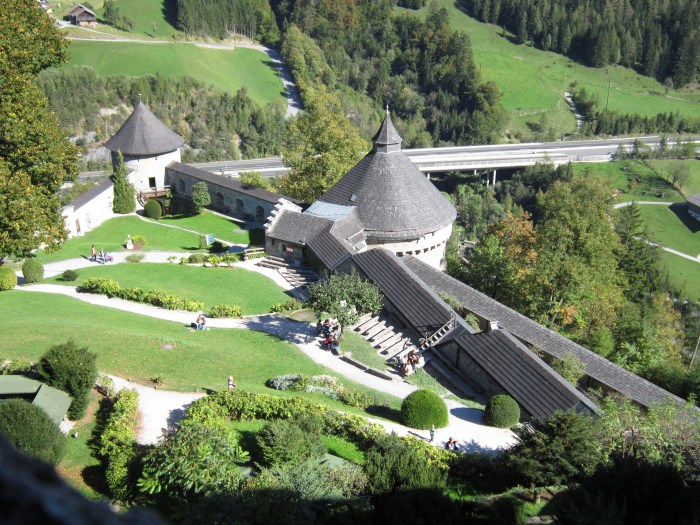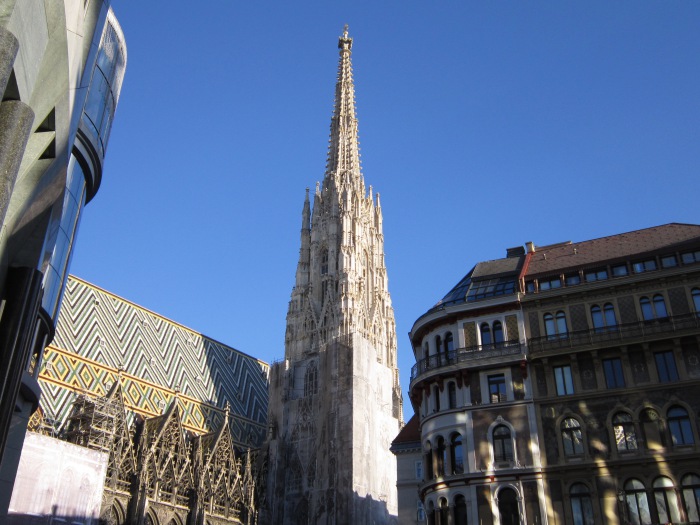Budget
Austria is far from being a cheap destination. However, if you skip some major attractions, sleep in hostels, and eat at inexpensive restaurants, you can save a lot of money.

• Prices for private rooms start at 25 USD (20.4 EUR) in Vienna, 50 USD (41 EUR) in Salzburg, 60 USD (49 EUR) near Mölltaler glacier, 85 USD (69 EUR) in Heiligenblut, and 115 USD (94 EUR) in Hallstatt.
• Food prices are fairly expensive. Prices for a budget dinner start at around 12 USD (9.8 EUR). Street food and fast food restaurants are usually cheaper.
• Transportation costs are high as well. Public transportation fares within the cities start at around 3 USD (2.5 EUR). A 2.5-hour train ride from Vienna to Salzburg generally costs at least 23 USD (19 EUR).
To save some more money, check out our Budget cutting tips.
Where to stay
You can find great accommodation options on Booking. Make sure to search for private rooms popular for romance. 😉 On Airbnb you can rent furnished apartments – those are usually cheaper than most hotels and they offer you the real Austrian experience.

Best time to go
The best time to visit Austria depends on where you want to go and what you want to do. Most mountain resorts have two tourist seasons – one for winter sports enthusiasts, the other for summer hikers. Some tourist facilities may be closed in spring and autumn. Urban centers are popular tourist destinations year-round, the peak seasons are in the summer and during the holiday season. Temperatures are the most pleasant from late April to late September. Skiing is possible from November to April.
Other information
♦ Planning and preparation: check out our planning routine here.
♦ Packing: check out the honeymoon adventurers’ ultimate packing list here.
♦ For other travel tips check out Travel like a pro, Travel for couples, Honeymoon styles, Honeymoon activities, Responsible tourism, and Travel resources.

♦ Language: The official language in Austria is German. Check out the typical travel vocabulary (in English) here. Learn useful travel phrases in German here.
♦ Currency: Euro (EUR)
♦ Visa or other entry requirements: All visitors to Austria are required to have a valid travel document. Visa requirements depend on the traveler’s nationality. For more information check out their official website.
♦ Electricity standards: The power plug types in Austria are C and F, the standard voltage is 230 V and the standard frequency is 50 Hz.
♦ Time zones: UTC+01:00 (Standard Time Zone),
UTC+02:00 (Daylight Saving Time – during the summer, from March to October)

♦ Immunization recommendations and requirements: There are no vaccination requirements for visitors to Austria. However, it is recommended to get travel vaccines and medicines for tetanus, hepatitis B, hepatitis A, rabies, and tick-borne encephalitis.
♦ Health and safety tips:
You should always make sure to follow the usual travel safety precautions:
- Leave your jewelry and other valuable belongings in the hotel safe.
- Keep your emergency cash apart from the rest of your money.
- Dress comfortably and carry only the items you will need for the day.
- Don’t carry a lot of money.
- Always make sure to lock your room before leaving the hotel.
- Be aware of your surroundings at all times.
- Stay in well-lit areas.
- Try to maintain a low profile and do your best to fit in.
- Carry a travel wallet/money belt/money pouch for carrying money and documents safely.
- Avoid contact with potential scam artists.
- Avoid showing off valuable belongings (like cameras) in public.
- Don’t count your money in public.
- Keep an eye on your belongings at all times.

For other common safety concerns in Austria, check out Lonely Planet’s safety tips. For common health concerns check out Lonely Planet’s health tips.
To stay healthy while traveling, check out our health travel tips.
• Tap water in Austria is safe to drink.
* While traveling, make sure to reuse a water bottle to cut down on waste.
♦ Local Customs: Austrians are generally modern, laid-back, friendly, and welcoming, yet somewhat reserved. When meeting someone personally a friendly handshake is customary. Address a person using his or her title (Herr/Frau) + professional title + last name. Eye contact is very important to Austrians and punctuality is highly valued. There is no particular dress code required on the streets of Austria. Make sure to dress up for formal occasions. Read more here.

Check out top things to see and do in Vienna and in Carinthia.
Leave a Reply